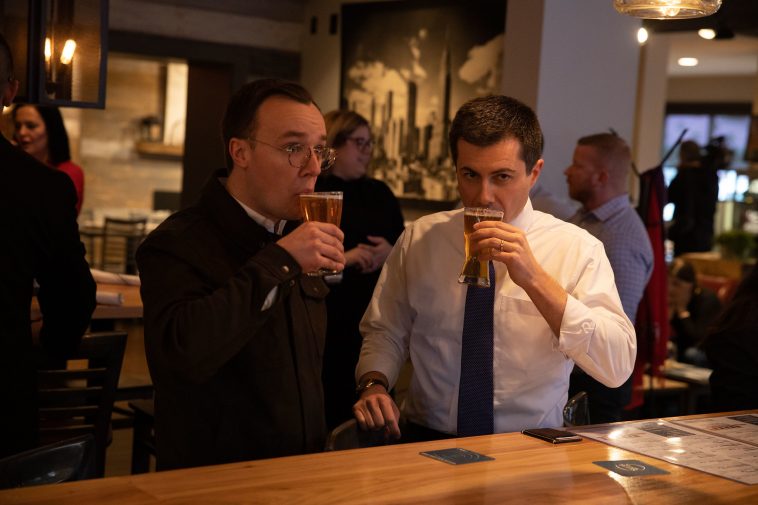Whilst he has been polling strongly for the past few months, former South Bend Mayor Pete Buttigieg’s performance in Iowa came as something of a surprise. More significantly, with Joe Biden crashing badly, it has made him at least for now the front runner for the moderate, establishment wing of the Democratic Party.
That’s not to say he isn’t a progressive in the now fairly conventional mould of the contemporary Democratic Party. He’s solid on social issues, talks the right talk on reducing inequality, and poses himself as a changemaker. He is committed to things such as a wealth tax, effective action on climate change, gun control, and to civil rights including voting rights for ex-felons.
He has solid policy stances on workers rights and is a supporter of a $15 per hour minimum wage. And he seems to respect Bernie Sanders, or at least he did in 2000 when he wrote an award winning essay lauding then Representative Sanders for his courage as a progressive voice in Congress.
But scratch below the surface and there are more questions than answers. Bernie Sanders, as we know, spent his 20s on the frontline of the civil rights movement. Pete Buttigieg spent his working for McKinsey with clients such as private health insurers and big supermarkets, and joining the military.
Whilst his platform is, as aforementioned, progressive, it is situated within a belief that the existing framework of capitalism is fundamentally the best system; Buttigieg identifies as a “democratic capitalist”, and nothing in his platform suggests he would do more than tinker at the edges of the system that makes America one of the most unequal countries in the developed world.
Many of Buttigieg’s actions speak louder than his ostensibly progressive words. There was the announcement just this past day that he had hired Sonal Shah, a former policy director at investment bank Goldman Sachs, which was at the forefront of the financial crisis.
On gun control, he concertedly positioned himself as more pro gun than Beto O’Rourke when the two sparred during the debates. He joined the military as a reservist at a time when many were questioning both the usefulness and the morality of American involvement in Afghanistan and Iraq.
Whilst military service is no doubt in many contexts a noble thing, a cynic would say this appears to be part of a pattern of choices by Buttigieg to best position himself to fulfil the ambition for office which has seemingly fuelled him for much of his adult life.
On free trade, a huge issue in Rust Belt states which swung to Trump in 2016, barring some muted condemnation of the TPP and NAFTA, he has been largely mute. And according to Forbes analysis, he is second only to Joe Biden, with 40 billionaire donors.
Pete Buttigieg looks to be the goods. But that’s the key word. Looks. There is next to nothing in his record barring some minor achievements as mayor of a small city in Indiana to provide any indication he has the capacity to deliver his platform.
There are far too many questions surrounding him for him to be a commendable choice for those who want a socially and economically progressive platform that includes the fundamental reshaping of how capitalism operates in America; to fix the broken system that led to President Trump’s election. Frankly, many of his billionaire donors probably wouldn’t be overly keen on that anyway.
Mayor Pete Buttigieg may make the right noises; he may well present as the slick communicator best presented to take the fight to Trump (though head to head polls say otherwise), and he may claim to be a changemaker.
But we think that Democrats who want real change, not just more bandaids on the wound that is American capitalism, would do well to look elsewhere. We hear there’s a Senator from Vermont who seems pretty good.



